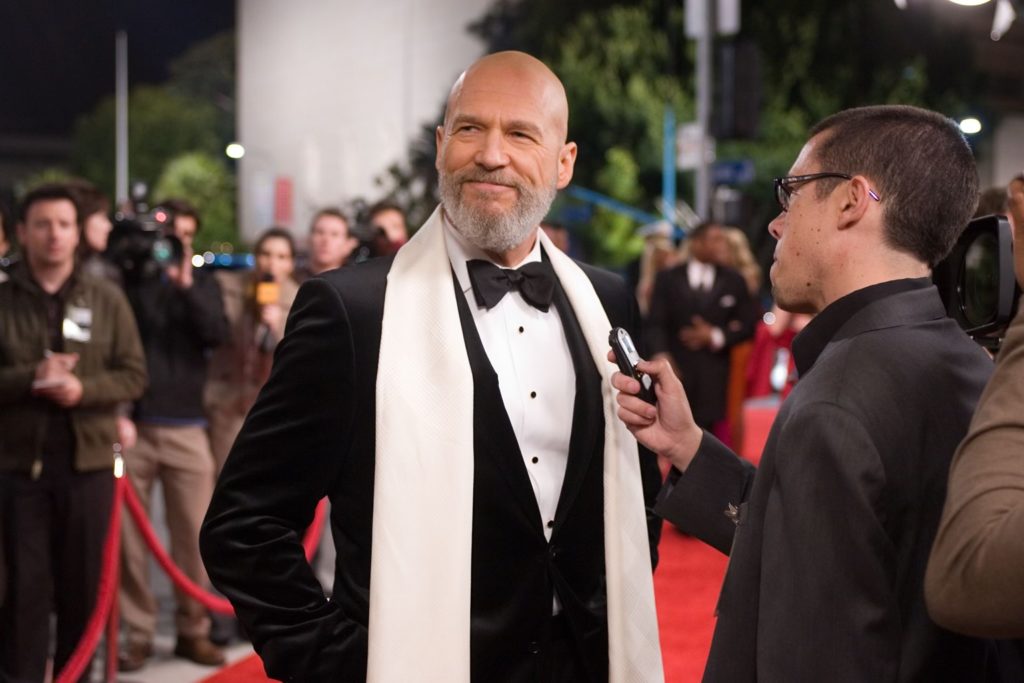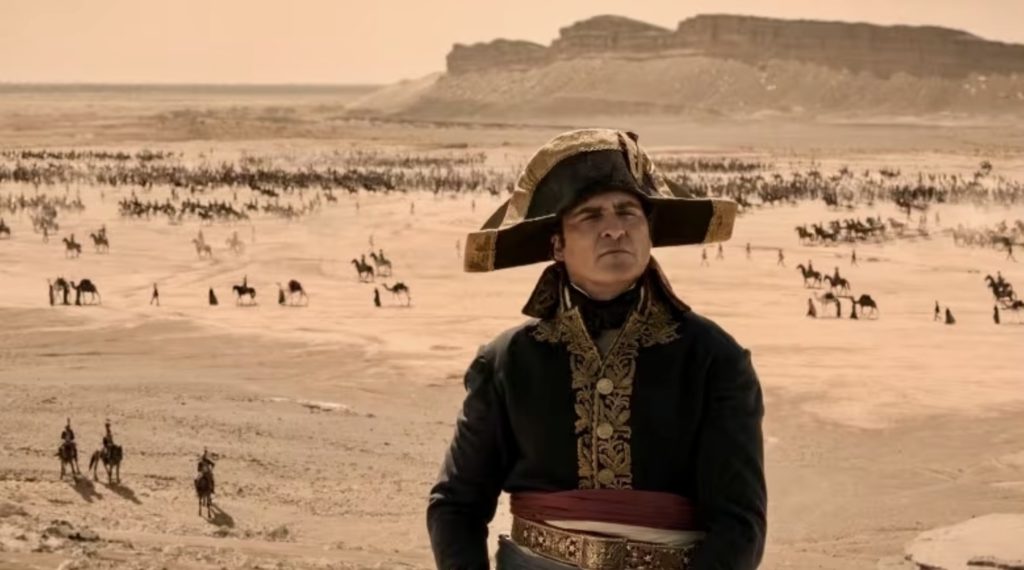Every once in a while, when I’m zombie-flipping TV stations, I’ll come across a channel playing Iron Man. Sometimes not far from my cameo about 45 minutes in. I can’t help but watch. Vanity, thy name is Bowles.
I also can’t help but watch because it’s the moment comic book films proved their might to Hollywood — and thus marked the point of their inexorable decline, corruption, and glorious farewell to moviemaking as we knew it for more than a century. Perhaps for history.
I just submitted my ballot for nominations this year for best film, actor, actress, supporting chimp, yaddy. And I struggled to find five Best Picture candidates.
The MPAA will have to select TEN from an arid, fractured cinematic landscape catastrophized by a writers/actors strike and left bone-dry from a pandemic that may turn movies into the Broadway of the Like & Subscribe generation: A pleasant, expensive distraction for those wealthy enough to spend that much money and three hours’ attention to a single storyline.
Iron Man, which turned 15 this year, wasn’t long, not that expensive ((less than $150 million), and very much a risky bet for Paramount Pictures, which produced the Robert Downey Jr. movie. I certainly didn’t think much of it when the studio asked if I wanted a cameo in the film, directed by Jon Favreau, a guy I’d interviewed before.
My response: Sure, but can I interview the cast — including Downey, fresh off a drug scandal, and Jeff Bridges, fresh off being the greatest actor of his generation — for the paper? I guess I’ll be a newspaperman longer than newspapers.
Paramount and Marvel agreed, and we set a date. In addition to the celebrity interviews as a piece, I offered my managing editor a first-person piece on being an extra in a Hollywood comic-book movie.
My editor said the genre was a risky bet, and declined the first-person story. Asshole barely ran a piece on the stars.
But fuck him. Here’s the story I would have written:
Not only was I going to get Downey and Bridges for the story, but Stan Lee, the Marvel Comics legend, would be on hand for his trademark cameo. As fate would have it, our scenes were back-to-back.
I dispensed with the interviews and began my scene — as a guy doing an interview.
The scene was at Disney Hall, which bristled with activity. A red carpet rolled, cameras were positioned and dozens of extras playing a press gaggled murmured and primped. Several asked what a reporter does on a red carpet; I said struggle.
But not tonight. “I guess we better rehearse,” Bridges said to me. It was a career highlight in a job that’s had a few.
We rehearsed the bit: Bridges, Playing Obadiah Stain, discussing the altruism of Stark Industries, with me nodding doped monkey.
What struck me about filmmaking was the time required. We must have spent an hour and a million dollars filming a scene that lasted 15 seconds. It remains a craftsman’s trade, but making movies cannot continue at that pace and cost if it hopes to see 2030.
And even if it does, can comic book movies remain a mainstay? I accompanied the movie to Comic-Con the summer it was to be released. I have never seen a more energized crowd, including for Springsteen or The Stones.
Hollywood needs a hero about now.
So Happy Birthday, Tony Stark. I think I know your candle wish.



